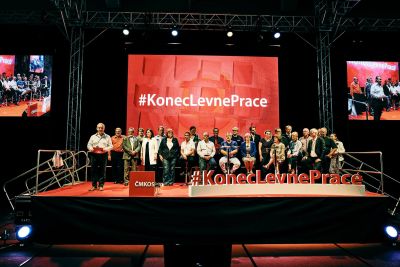
In the Czech Republic, wages are significantly higher in companies where workers are members of trade unions and carry out collective bargaining than in unorganised workplaces.
In 2015, for example, figures from the union confederation CMKOS show that workers covered by collective agreements earned just over 31,000 CZK gross a month (approx. €1,150) compared with 28,000 CZK elsewhere.
A decline in trade union membership was arrested in 2016, and unions are now recruiting a growing number of members, coupled with an increase in the number of collective agreements.
Last year, CMKOS launched its ‘End Cheap Labour’ campaign (#KonecLevnePrace) to encourage trade union negotiators and give them arguments supporting their wage demands. And the results? The average wage grew by 4.4% (3.9 % in real terms): the highest increase in nine years.
CMKOS is pressing for faster wage convergence. Calculations show that if Czech wages grow at the same rate as over the last decade, they will take almost a century to catch up with Germany. So, the ‘End of Cheap Labour’ campaign is continuing, with CMKOS calling for 5-5.5% wage growth in 2017.
“If we want a European Union, we must have a social dimension, including fair wages,” said CMKOS President Józef Stredula. “People support us. It’s about the future of our families and our life in Europe.”
